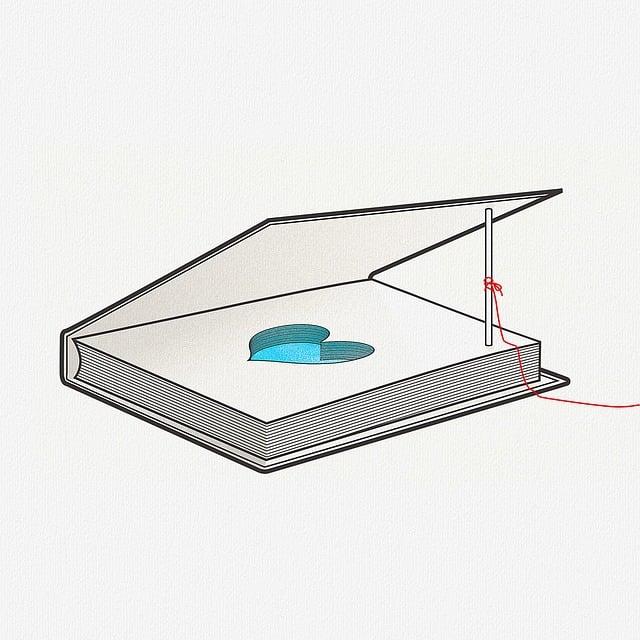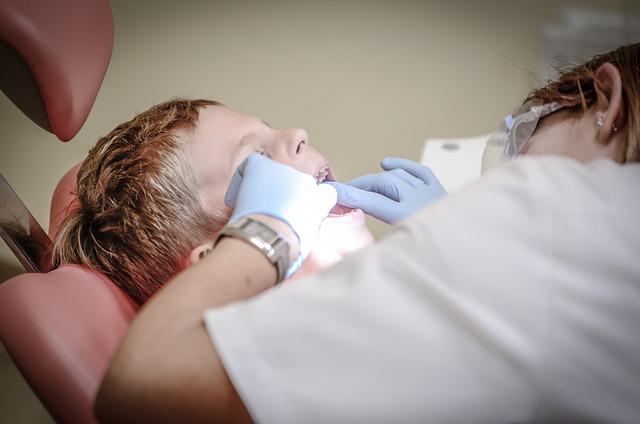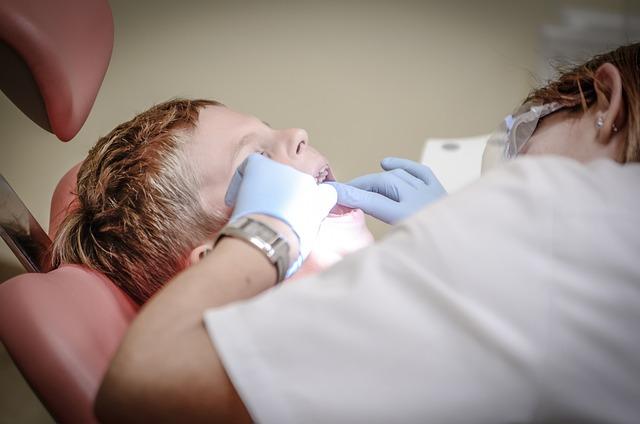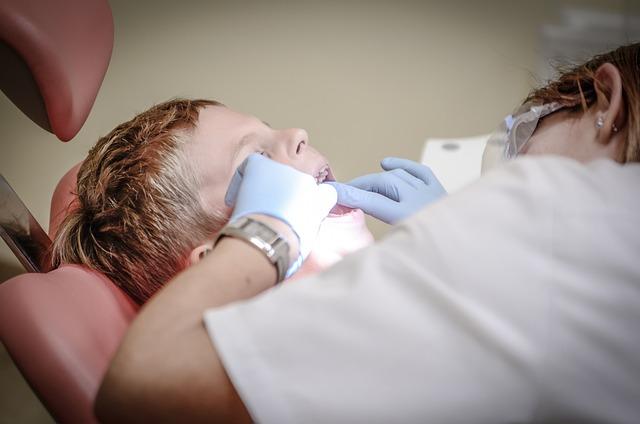When Should I Use Saltwater After Tooth Extraction? Dental Recommendations
When it comes to tooth extraction, proper aftercare is crucial for a smooth and speedy recovery. One commonly recommended practice is rinsing the mouth with saltwater, but knowing the right time to start this routine can sometimes be confusing. In this article, we will provide you with confident, knowledgeable, and neutral dental recommendations on when to use saltwater after tooth extraction. By understanding the benefits and timing of this simple yet effective practice, you’ll be equipped with the necessary information to ensure optimal healing and oral health. So, let’s dive in and unravel the mysteries behind saltwater rinses after tooth extraction!
1. Understanding the Importance of Saltwater After Tooth Extraction: Dental Insights
Saltwater rinses are an essential part of post-tooth extraction care. They play a crucial role in promoting healing and preventing infection. Here’s why saltwater is so important after a tooth extraction:
- Reducing swelling and inflammation: Saltwater rinses help to reduce swelling and inflammation in the area where the tooth was extracted. The warm saline solution helps to soothe the tissues and promote faster healing.
- Keeping the extraction site clean: Saltwater acts as a natural disinfectant, keeping the extraction site clean and free from harmful bacteria. Rinsing with saltwater helps to remove any food particles or debris that may get trapped in the area, reducing the risk of infection.
- Alleviating discomfort: Saltwater rinses provide temporary relief from discomfort and soreness that commonly occurs after a tooth extraction. The gentle rinsing action can help to soothe any residual pain and promote a more comfortable healing process.
It’s important to note that proper technique is crucial when using saltwater rinses. To create a saltwater solution, mix half a teaspoon of salt in eight ounces of warm water. Gently swish the solution around your mouth for about 30 seconds, focusing on the area of the extraction. Spit it out and repeat this process several times a day, particularly after meals, for optimal results.

2. The Optimal Timing for Saltwater Use After Tooth Extraction: Expert Recommendations
After a tooth extraction, the timing for using saltwater is crucial for proper healing. Expert recommendations suggest that patients should wait for a specific period before incorporating saltwater into their oral hygiene routine. While the exact duration may vary depending on the individual’s healing process, it is generally advised to wait at least 24 hours after the extraction before using saltwater.
Using a saltwater rinse can help clean the area around the extraction site, reduce inflammation, and promote healing. However, it is essential to note that the concentration of the saltwater solution should be properly balanced. The recommended ratio is typically one-half teaspoon of salt dissolved in eight ounces of warm water. This solution should be gently swished around the mouth, focusing on the extraction site, for about 30 seconds before spitting it out.
It is important to consult with a dental professional to determine the optimal timing for using saltwater after a tooth extraction. They will assess the individual’s healing progress and provide personalized advice based on the specific case. Following expert recommendations regarding the timing and technique of saltwater use can significantly contribute to a smoother recovery and overall oral health.

3. Nurturing Healing with Saltwater: Dental Guidelines for Post-Extraction Care
After undergoing a tooth extraction, it is crucial to follow proper dental guidelines for post-extraction care. One effective method for nurturing healing is using saltwater rinses. Saltwater is a natural remedy that can help reduce swelling, prevent infection, and promote healing. Here are some essential guidelines to keep in mind:
- Prepare the saltwater solution: Dissolve half a teaspoon of salt in a cup of warm water. Make sure the water is not too hot to avoid discomfort.
- Rinse gently: After 24 hours of the extraction, start rinsing your mouth with the prepared saltwater solution. Take a small sip and swish it around your mouth for about 30 seconds. Then, spit it out gently without gargling or swallowing.
- Repeat regularly: It is recommended to rinse your mouth with saltwater at least 2-3 times a day, especially after eating. Be consistent with this routine for the next 7-10 days to optimize healing.
Remember, saltwater rinses are only one aspect of post-extraction care. It is important to avoid touching the extraction site with your tongue or fingers, refrain from smoking, and maintain good oral hygiene by gently brushing your teeth twice a day. If you experience excessive pain, bleeding, or any concerning symptoms, contact your dentist for further guidance.

4. Saltwater Rinses: A Gentle and Effective Way to Promote Healing After Tooth Extraction
Saltwater rinses are an excellent method to aid in the healing process following a tooth extraction. This gentle and effective technique helps promote healing and reduce the risk of infection. By using a saltwater rinse, you can provide a natural and soothing environment for your gums to recover.
To prepare a saltwater rinse, simply mix half a teaspoon of salt with eight ounces of warm water. Stir until the salt is completely dissolved. Take a small sip of the mixture and gently swish it around your mouth for about 30 seconds before spitting it out. Repeat this process several times a day, especially after meals, to keep your mouth clean and encourage healing.
The benefits of saltwater rinses after tooth extraction are numerous. They help reduce inflammation, alleviate discomfort, and prevent the buildup of bacteria in the extraction site. Additionally, saltwater rinses promote blood circulation in the area, aiding in the formation of new tissue and faster healing. Remember to always consult your dentist for specific instructions on how often and for how long you should use saltwater rinses, as it may vary depending on the individual case.
5. Harnessing the Power of Saltwater: When and How to Use it for Optimal Oral Health
When it comes to maintaining optimal oral health, harnessing the power of saltwater can be a game-changer. Saltwater, also known as saline solution, has been used for centuries as a natural remedy for various health issues, including oral hygiene. By incorporating saltwater into your oral care routine, you can reap numerous benefits that go beyond just fresh breath and a sparkling smile.
So, when should you use saltwater for your oral health, and how exactly should you use it? Here are some key pointers to keep in mind:
- Post-surgery or dental procedures: Saltwater rinses are highly recommended after oral surgery or dental procedures, such as tooth extractions or implant placements. The gentle saline solution helps to soothe the gums, reduce inflammation, and promote faster healing.
- Periodontal health: If you’re experiencing gum inflammation or gingivitis, saltwater rinses can provide relief. The antibacterial properties of saltwater help to kill harmful bacteria in the mouth, reduce plaque formation, and alleviate gum sensitivity.
- Oral infections: Saltwater is a natural antiseptic that can aid in the treatment of oral infections like canker sores or mouth ulcers. Rinsing with saltwater several times a day can help cleanse the affected area, reduce pain, and promote faster healing.
Remember, while saltwater can be beneficial for your oral health, it should not replace your regular oral hygiene routine. Brushing your teeth twice a day, flossing, and visiting your dentist regularly are still essential for maintaining a healthy mouth. Incorporating saltwater rinses into your routine can serve as an excellent complementary practice that enhances your overall oral health.
6. Unveiling the Benefits of Saltwater: A Dentist’s Perspective on Post-Extraction Care
Saltwater has long been recognized for its healing properties, and from a dentist’s perspective, it can be particularly beneficial for post-extraction care. Here are some key benefits of using saltwater as a natural remedy for promoting healing and reducing discomfort after a tooth extraction:
1. Reduces swelling and inflammation: Saltwater acts as a natural antiseptic, helping to cleanse the extraction site and prevent infection. It also has anti-inflammatory properties that can help reduce swelling and inflammation, providing relief from post-extraction discomfort.
2. Promotes healing: The saline solution created by saltwater can accelerate the healing process by increasing blood flow to the area. This enhanced circulation helps deliver essential nutrients and oxygen to the extraction site, aiding in the formation of new tissue and promoting faster recovery.
3. Prevents infection: Saltwater is known for its ability to kill bacteria and inhibit the growth of microorganisms. Rinsing with saltwater can help prevent infection at the extraction site, reducing the risk of complications during the healing process.
To harness the benefits of saltwater for post-extraction care, simply mix half a teaspoon of salt in a glass of warm water. Use this solution to gently rinse your mouth after meals or as directed by your dentist. Remember to spit out the solution and avoid swallowing it. Incorporating saltwater rinses into your post-extraction care routine can greatly contribute to a smooth and comfortable recovery.
7. Achieving a Speedy Recovery: Dentist-Approved Saltwater Usage after Tooth Extraction
Dentist-approved saltwater usage can be an effective way to achieve a speedy recovery after a tooth extraction. Saltwater, when used correctly, can help reduce inflammation, prevent infection, and promote healing. Here are some important guidelines to follow:
- Dissolve the salt in warm water: Mix half a teaspoon of salt in eight ounces of warm water until it completely dissolves. The warm temperature helps increase blood flow to the area, aiding in the healing process.
- Rinse gently: After the first 24 hours following the extraction, you can start rinsing your mouth with the saltwater solution. Take a small sip and gently swish it around the extraction site for about 30 seconds. Spit it out and repeat a few times a day.
- Don’t overdo it: While saltwater rinses can be beneficial, excessive rinsing can disrupt the formation of a blood clot or cause irritation. Stick to the recommended frequency and duration to avoid any complications.
- Follow your dentist’s instructions: Every patient is unique, and your dentist may provide specific instructions tailored to your situation. It’s crucial to follow their guidance to ensure a successful recovery.
Using saltwater as a post-tooth extraction rinse can be a simple yet effective addition to your recovery routine. Remember to prioritize your oral hygiene, maintain a balanced diet, and attend follow-up appointments to monitor your progress. If you experience severe pain, excessive bleeding, or any concerns, contact your dentist immediately for further guidance.
8. Saltwater Solutions: When to Start Rinsing and How Often After Tooth Extraction
After a tooth extraction, rinsing with saltwater can help promote healing and prevent infection. It is important to know when to start rinsing and how often to do it to maximize the benefits. Here are some guidelines to follow:
- When to start rinsing: You can start rinsing with saltwater 24 hours after your tooth extraction. This allows the initial blood clot to form and stabilize, which is crucial for proper healing.
- How often to rinse: For the first few days after the extraction, rinse with saltwater every 2-3 hours during waking hours. This frequency helps keep the extraction site clean and reduces the risk of infection. As the days progress and healing continues, you can gradually reduce the frequency to 3-4 times a day.
- How to prepare the saltwater solution: Dissolve half a teaspoon of salt in 8 ounces of warm water. Stir until the salt is completely dissolved. Make sure the water is not too hot to avoid causing any discomfort to the extraction site.
Remember, while rinsing with saltwater is beneficial, it should not replace proper oral hygiene practices such as brushing and flossing. If you experience excessive pain, swelling, or any unusual symptoms, it is important to contact your dentist for further guidance.
9. The Healing Effects of Saltwater: Dentists Share Their Insights on Post-Extraction Care
After a tooth extraction, proper care is essential for a smooth and speedy recovery. Many dentists recommend the use of saltwater as a natural and effective way to promote healing. Here are some insights shared by dental professionals on the benefits and best practices of using saltwater for post-extraction care.
Benefits of Saltwater:
- Promotes healing: Saltwater has natural antiseptic properties that can help prevent infection and reduce inflammation.
- Reduces discomfort: Rinsing with saltwater can provide temporary relief from pain and discomfort after a tooth extraction.
- Minimizes swelling: Saltwater can help reduce swelling by drawing out excess fluid from the extraction site.
How to Use Saltwater for Post-Extraction Care:
- Dissolve half a teaspoon of salt in a glass of warm water.
- Gently swish the saltwater solution in your mouth for about 30 seconds, making sure it reaches the extraction site.
- Repeat this process 2-3 times a day, especially after meals, for the first few days following the extraction.
- Always remember to spit out the saltwater solution and avoid swallowing it.
While saltwater can aid in the healing process, it is important to follow your dentist’s instructions and attend all post-extraction follow-up appointments. If you experience excessive bleeding, severe pain, or any unusual symptoms, promptly reach out to your dental professional for further guidance. Taking proper care of your oral health after a tooth extraction will help ensure a smoother recovery and minimize any potential complications.
10. Expert Advice: Saltwater Rinses for Faster Healing and Pain Relief After Tooth Extraction
After a tooth extraction, it is important to take proper care to promote faster healing and alleviate any pain or discomfort. One effective method that experts recommend is using saltwater rinses. These rinses have been proven to provide several benefits, including reducing inflammation, preventing infection, and soothing the area.
Here are some expert tips on how to use saltwater rinses for optimal results:
- Prepare the solution: Dissolve half a teaspoon of salt in eight ounces of warm water. Stir until the salt is completely dissolved.
- Rinse gently: Take a mouthful of the saltwater solution and swish it around your mouth, making sure to pass it gently over the extraction site. Spit out the solution after about 30 seconds.
- Repeat regularly: Perform the saltwater rinse four to five times a day, especially after meals and before bedtime, for the first week following the extraction.
- Do not overdo it: While saltwater rinses are beneficial, excessive rinsing can delay healing. Stick to the recommended frequency and duration.
Remember, always consult your dentist for specific instructions tailored to your situation. Saltwater rinses can be a valuable addition to your post-tooth extraction care routine, aiding in faster healing and providing relief from discomfort.
Frequently Asked Questions
Q: When should I use saltwater after tooth extraction?
A: It is recommended to start using saltwater rinses 24 hours after your tooth extraction.
Q: Why do dentists recommend using saltwater after tooth extraction?
A: Dentists recommend saltwater rinses because they help keep the extraction site clean and promote healing.
Q: How do saltwater rinses help in the healing process?
A: Saltwater rinses create a gentle saline environment that helps reduce inflammation, prevent infections, and aid in the healing of the wound.
Q: How should I prepare a saltwater solution for rinsing?
A: To prepare a saltwater solution, dissolve half a teaspoon of salt in 8 ounces of warm water. Make sure the water is not too hot to avoid any discomfort.
Q: How often should I use saltwater rinses?
A: It is recommended to use saltwater rinses at least 2-3 times a day, especially after meals, for the first week following your tooth extraction.
Q: How long should I continue using saltwater rinses?
A: You should continue using saltwater rinses for at least one to two weeks or until your dentist advises you otherwise.
Q: Are there any alternative mouth rinses I can use instead of saltwater?
A: While saltwater rinses are commonly recommended, some dentists may suggest using an antimicrobial mouthwash as an alternative. Consult with your dentist for specific recommendations.
Q: What should I do if I experience excessive pain or swelling after using saltwater rinses?
A: If you experience excessive pain or swelling, it is important to contact your dentist immediately for further evaluation and guidance.
Q: Can saltwater rinses be used for any other dental procedures?
A: Yes, saltwater rinses can also be beneficial after other dental procedures, such as wisdom tooth extraction or gum surgery. Always follow your dentist’s instructions for the specific procedure you undergo.
Q: Are there any precautions I should take while using saltwater rinses?
A: It is important to avoid vigorous rinsing and spitting to prevent dislodging the blood clot and delaying the healing process. Gently swishing the saltwater solution around your mouth is sufficient.
To Conclude
In conclusion, understanding when to use saltwater after a tooth extraction is crucial for proper dental care. Following the recommendations of dental professionals ensures a successful healing process and minimizes the risk of complications. Here are the key takeaways to remember:
1. Saltwater rinses can be beneficial after tooth extraction, promoting healing and reducing discomfort.
2. It is generally recommended to start using saltwater rinses 24 hours after the procedure.
3. The solution should be prepared by dissolving half a teaspoon of salt in 8 ounces of warm water.
4. Gently swishing the saltwater rinse around the mouth for about 30 seconds, multiple times a day, is an effective way to clean the extraction site.
5. Avoid using mouthwashes containing alcohol or other chemicals, as they may hinder the healing process.
6. Following proper oral hygiene practices, such as brushing gently and avoiding the extraction area, is crucial during the healing period.
7. Contact your dentist if you experience excessive pain, bleeding, or any other concerning symptoms.
Remember, using saltwater after tooth extraction is just one aspect of post-operative care. It is always best to consult your dentist for personalized guidance and recommendations. By following these guidelines, you can ensure a smooth recovery and maintain optimal oral health.






